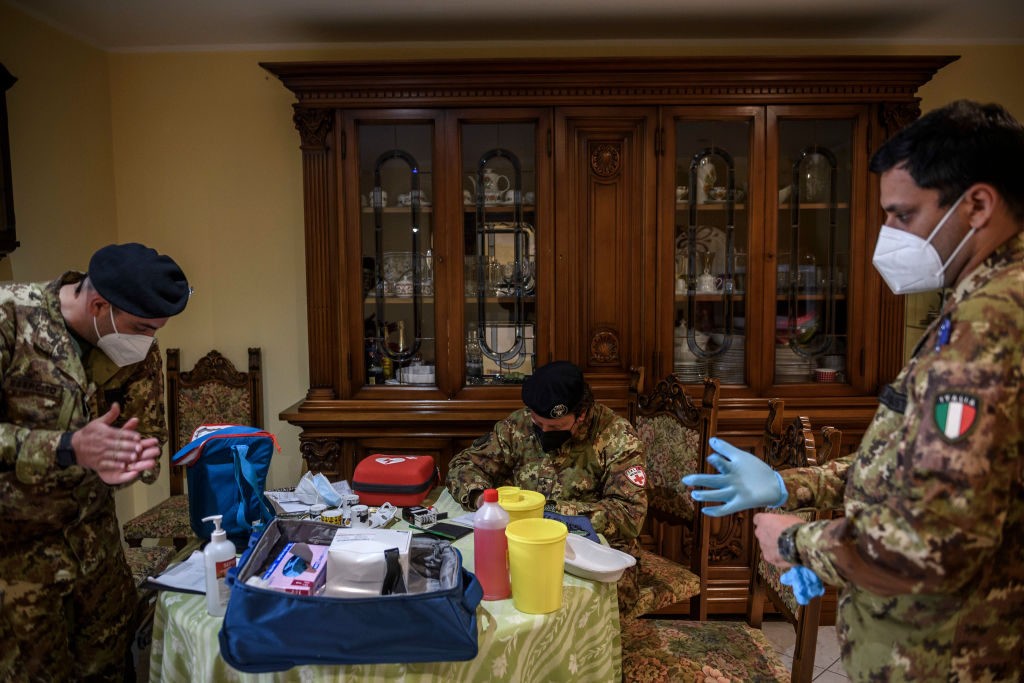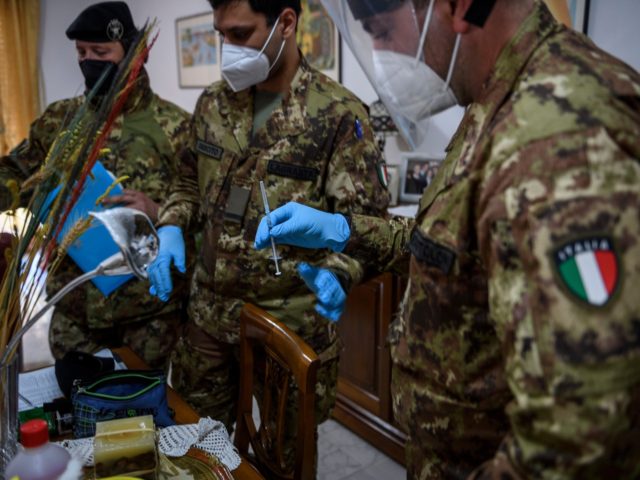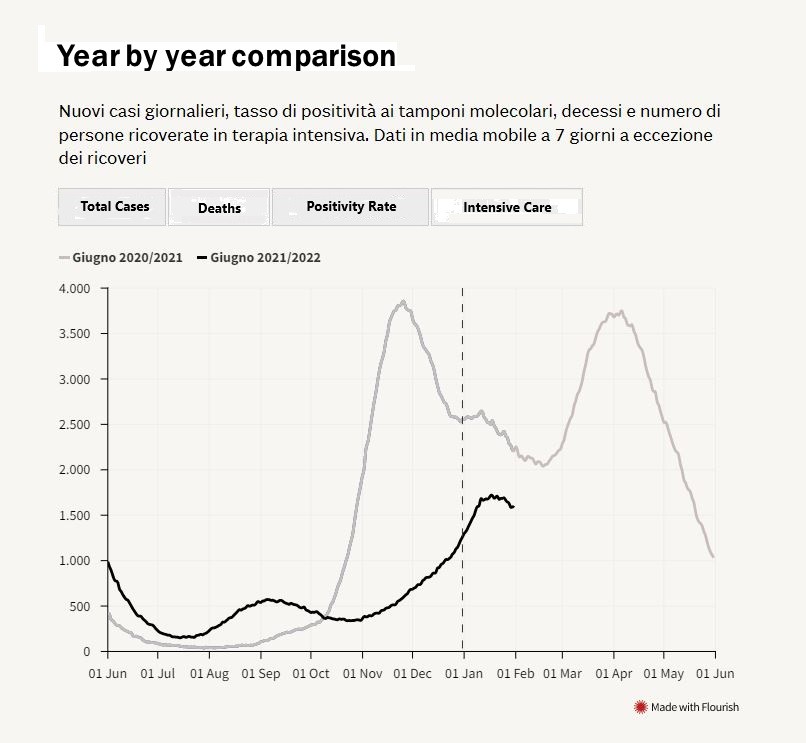ROME — Italy’s military archbishop has defended the role of the armed forces and police in enforcing anti-coronavirus measures as Italy begins its third year under a “state of emergency.”
Archbishop Santo Marcianò released a statement to all military and law enforcement personnel on Monday evening, insisting that the decisive role of military and police forces includes ensuring “orderly compliance with the rules issued by the government on the basis of the directives of the scientific bodies to better ensure the vaccination coverage of the population.”
Archbishop Marcianò was reacting to a January 29 letter to the Italian armed forces from the former Vatican Nuncio to the United States, Archbishop Carlo Maria Viganò, who denounced “a global coup, planned and carried out under the pretext of a pandemic,” while urging them not to follow illegitimate orders.
“No one has taken into account your sense of frustration in harassing your fellow citizens for the most absurd reasons, exposing you and the corps you represent to the contempt of honest people, guilty of not wanting to undergo an experimental mass vaccination of which we are beginning to see the devastating results,” Viganò wrote.
“And while you were busy fining the disabled elderly woman or the student without a mask; while you dispersed the crowd of demonstrators with fire hydrants and laid-off workers with batons, the criminals were deliberately left free to steal, attack, and rape the Italians,” he added.
“How many times have you thought that the protests of the citizens were justified, just as the disappointment they feel in seeing you carry out orders worthy of a totalitarian regime is justified?” he asked.
In his response, Archbishop Marcianò decried “extreme positions” that have been taken “even within the ecclesial world, in dissonance with the directives of the health and public authorities as well as in open contrast with the indications of the Church.”
“Among them, recently, there is a letter in which a bishop, a former apostolic nuncio, known for his conspiratorial statements, urged men and women of the armed forces to disobedience,” Marcianò warned.

The mobile health team of Italian Army prepares the Pfizer/BioNTech (Comirnaty) COVID-19 vaccine for a woman over 80-years-old, as part of the home vaccinations plan for frail people in the Molise Region, on March 28, 2021 in Isernia, Italy. (Antonio Masiello/Getty Images)
“Do not let yourselves be confused or discouraged in carrying out your mission!” he wrote, urging them to continue fighting “a global emergency that has seen and still sees the drama of so many infections and so many deaths in solitude.”
The Italian government has repeatedly extended the national “state of emergency” over the last two years, bypassing the legislative process to grant extraordinary powers to the executive branch. Italy’s state of emergency began on January 31, 2020 and is currently scheduled to last at least until March 31, 2022.
The declaration of a “state of emergency” is not contemplated by the Italian Constitution but is based on a law from February 24, 1992, which received further detailing in the 2018 Civil Protection Code. The Code states, however, that its duration “cannot exceed 12 months, and can be extended for no more than another 12 months,” meaning that the current state of emergency has no legal grounding.
Over the past two years, the Italian government has taken advantage of its special powers to issue more than 80 Civil Protection ordinances including several degrees of lockdown, limitations on movement, use of masks, and maximum numbers of persons allowed in one’s residence.
Regarding the actual state of affairs regarding the coronavirus health situation in Italy, it is difficult to see the justification for continued limitation of citizens’ activities, even if the current state of emergency were legal.
The daily Italian newspaper Il Sole 24 Ore publishes every evening a helpful graphic comparison of the health situation in the winter of 2021-2022 with that of last year (2020-2021), which depicts a vastly improved situation in the present day.
The picture below shows the number of coronavirus patients in Italian ICU in the winter of 2020-2021 as compared with this winter, updated on January 31, 2022. The darker line represents this year’s cases.


COMMENTS
Please let us know if you're having issues with commenting.